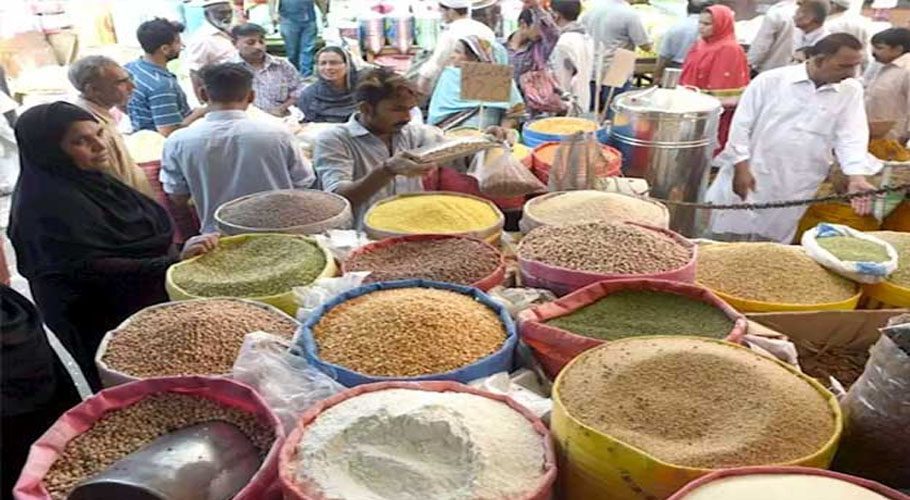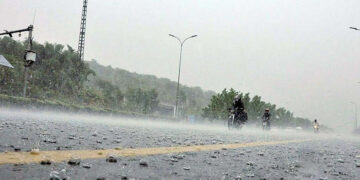![]() Follow Us on Google News
Follow Us on Google News
ISLAMABAD: The weekly inflation in Pakistan, measured by the Sensitive Price Index (SPI), increased by 0.62 percent for the week ended on November 17.
According to the data issued by the Pakistan Bureau of Statistics (PBS), the SPI for the week under review was recorded at 216.82 points against 216.48 points registered in the previous week.
The SPI monitors the prices of 51 essential items based on a survey of 50 markets in 17 cities across the country. During the week, the prices of 23 items increased, 13 decreased and 15 remained unchanged.
The items which recorded decrease in their average prices on week-on-week (WoW) basis included tomatoes (6.06%), pulse masoor (1.56%), pulse gram (1.46%), vegetable ghee 1 kg (1.03%), pulse mash (0.68%), pulse moong (0.62%), cooking oil 5 litre (0.38%), vegetable ghee 2.5 kg (0.30%), garlic (0.26%) and wheat flour and LPG (0.22%) each.
The commodities which recorded increase in their average prices included salt powdered (7.61%), tea packet (5.90%), chicken (4.89%), onions (4.61%), eggs (3.66%), potatoes (2.48%) and chillies powdered (1.30%), firewood (6.23%), georgette (1.76%) and energy saver (1.32%).
On year-on-year (YoY) basis, the commodities that witnessed decrease in prices included chillies powdered (41.42%), gur (5.81%), sugar (4.27%), electricity for q1 (2.67%) and LPG (0.38%)The commodities that witnessed increase in prices on YoY basis included onions (319.35%), diesel (64.57%), tea packet (59.27%), pulse gram (57.39%), salt powdered (54.67%), petrol (53.85%), gents sponge chappal (52.21%), pulse moong (51.24%), bananas (47.28%), pulse mash (47.11%), washing soap (44.67%), pulse masoor (43.39%), mustard oil (43.36%) and vegetable ghee 2.5 kg (41.13%).
The annual CPI inflation surged to 26.6pc YoY in October after it slowed to 23.2pc in September from a 49-year high of 27.3pc in August as the country continued to be in the grip of high food and transport prices.
Soaring vegetable prices, especially onions and tomatoes, due to damage to standing crops caused by the floods and a massive hike in electricity rates contributed to pushing up inflation in recent weeks.




































